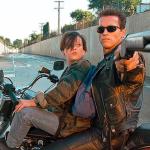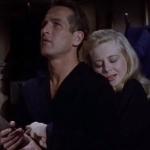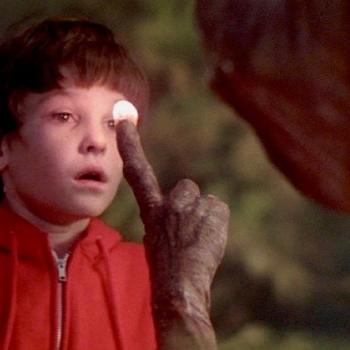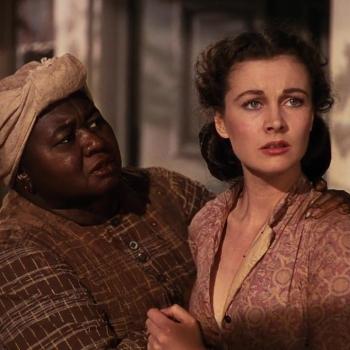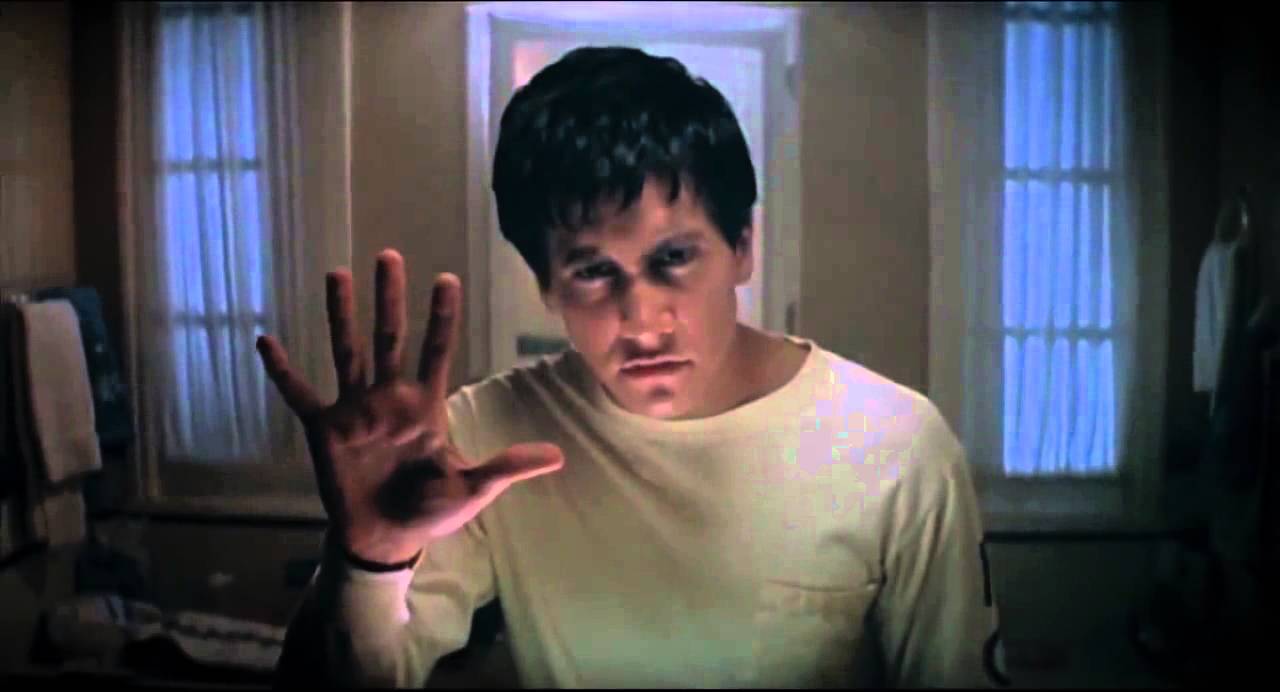
Confession: I still don’t get the ending of Donnie Darko … but I do know there’s a lot about the ending that I really like.
That final exchange between Donnie’s mom and Gretchen where you can tell that they recognize each other but have no idea why … there’s a lot going on there. They have no memory of one another, but still feel the residue of their interactions from another timeline, a timeline that is now erased. Erased, because Donnie went back to cancel the universe wherein Gretchen lost her life. That’s the universe that we, the audience, have been observing over the last two hours. Functionally, that’s all evaporated. But we remember it. We see what’s reacting between them.
If you’re coming into this having not seen the film and waiting for me to make the movie make sense … I have to apologize. The film’s plot is deceptively intricate, such that it’s nearly impossible to adequately summarize in this space. The elements involved are all so fantastically eclectic, and yet by the end the equation somehow all balances out. It’s also not a film that really gives a lot of definitive answers to the questions it raises. In this way, it’s a lot like Richard Linklater’s Waking Life, which coincidentally came out the same year.
Just know … Donnie Darko is a troubled kid–and was even before a giant rabbit named Frank started warning him that the world is going to end in 28 days. Frank’s first appearance coincides with an airplane engine falling from the sky and crushing Donnie’s bedroom when Donnie happens to be wandering the town. He’s left untangling what all that means as various threads within his community start converging in unusual ways–and as Donnie himself starts to influence it in even more unusual ways. Donnie tries explaining all this to his therapist, but she doesn’t know what to make of it either.
Frank’s prophesied doomsday arrives, and in a confluence of circumstance, his girlfriend, Gretchen, is killed when she gets run over by a car by … Frank, a guy in a giant rabbit costume. But Donnie finds a wormhole and travels through it, back to the day Frank first appeared to Donnie. The film loops back to the beginning, only in this new timeline, Donnie was killed when the mysterious airplane engine crushed him in his bedroom. Gretchen will never know that Donnie loved her, let alone loved her enough to trade his life for hers, but her life has been touched by his involvement, nonetheless.

There is explicit religious dialogue within the film. A part of Donnie’s search for truth has him openly wondering whether God exists or what he has to do with any of this. This is funny because, at a glance, the movie should be way too grim and cynical to contain anything that I’d consider divine. I actually remember having a somewhat adverse reaction to it my first viewing because mostly what I remembered was the wallowing teenage angst of it all (e.g. Donnie calling his mother a b**** in the first ten minutes). But when I can bring myself to think about divinity, mortality, and how these two things intersect, I have to concede that maybe the admixture will look crude at a glance. And is not the station of a teenager–a person with infinite potential yet seemingly little ability to influence his own destiny–as good a vantage point as any to reflect on the nature of the universe?
The movie has you reconsider the invisible chords that connect us, and the thin veneers that keep us from seeing and empathizing with each other. Donnie has some experiences with, say, learning to be nice to the shy overweight girl, Cherita, whom his friends like to bully for her lisp. But Donnie also confronts the rampant hypocrisies in his environment, like his prudish gym teacher, Kitty Farmer, who wields her social influence to stifle anything that threatens to pose as progressive, but whose commitment to local celebrity, Jim Cunningham, borders on worship.
Yet they are all afforded emotional complexity, humanity. This is a throughline brought to the surface in the “Mad World” sequence toward the end where we see all the lives that Donnie has touched, all of them people who recognize in the wake of Donnie’s death that part of their fabric has been suddenly torn from them, something they took for granted. This segment more than any other speaks to the possibility of divine connection, an idea that even something as insignificant as a teenage kid could be a binding force between all of them, an agent in their own destiny that shapes them as only a celestial force ever could.
If you’ve seen the movie, you know what I mean.



